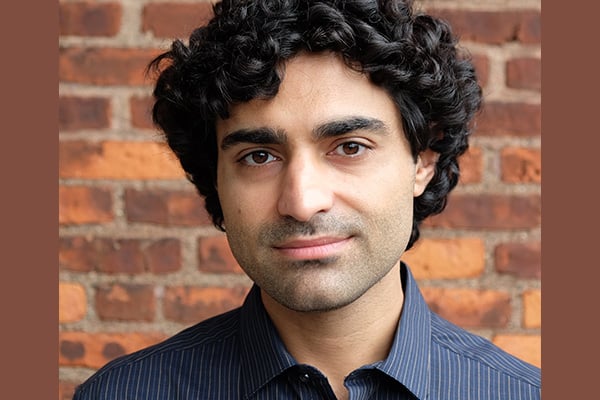Reza Kalhor joined the Johns Hopkins Department of Biomedical Engineering as an assistant professor in October 2019. In this interview, Kalhor discusses his research on mapping and understanding embryonic development, a memorable “eureka moment,” and career advice for current students.
What made you pursue a career in engineering?
I don’t think I explicitly planned to pursue a career in science and engineering; I just pursued the ideas and the people that inspired me. I also enjoy it because it involves endless puzzles and riddles, and I have always found puzzles and riddles interesting.
Why did you choose Johns Hopkins BME? What are you looking forward to most?
This department has a very broad scope with outstanding faculty, students, and researchers with disparate interests. As someone whose work often crosses disciplines and enters new realms, I appreciate the opportunity to benefit from their expertise and be inspired by their ideas. For instance, Hopkins BME is integrated very well with the School of Medicine, facilitating the parts of my lab’s work that can have clinical relevance. At the same time, it includes a group of outstanding quantitative and computational scientists, better enabling us to pursue our aspirations in these areas. So, I look forward to working together and learning from these outstanding scientists.
Can you give a brief overview of your current research?
My current research primarily focuses on creating the new generation of technologies that enhance our ability to map and understand embryonic development. I find embryonic development enduringly fascinating: how the zygote, a single cell with just 3 billion bases of DNA, most of it ‘junk’, somehow gives rise to an entire organism with all its cell and tissue types that work in coordination to make a self-sustaining and, in certain cases, intelligent living entity. It goes from pure simplicity to unfathomable complexity. So, my lab works on developing the molecular devices, engineering techniques, and computational approaches that allow us to better record and analyze this process.
Have you ever experienced a “eureka moment?”
I have had the fortune of experiencing three or four eureka moments. In one particularly memorable instance, we had been frustrated for months with the inconsistent behavior of a DNA polymerase. One day I had a sort of ‘enough is enough’ moment and decided to run a comprehensive screen of all possible primer and nucleoside triphosphate substrate combinations with a gradient of concentrations for each substrate. Forty straight hours, hundreds of reactions, and tens of acrylamide gels later, I found that, contrary to what I had seen in any other polymerase and what the literature seemed to imply about this one, the enzyme was surprisingly sensitive to the primer substrate, far more than it cared about the nucleoside triphosphate. This realization instantly converted exasperating confusion into serene clarity – a quintessential eureka moment. And naturally, as it goes with eureka moments, I needed to tell someone about it. But alas, it was midnight with no one else in the lab and my close friend and collaborator on a trip to Asia. So, I just biked home and simply enjoyed the warm summer breeze on cloud nine.
What do you consider your biggest research accomplishment so far?
My work in developing Hi-C technologies for assessing genome organization in 3D, and establishing combinatorial genomic barcoding for tracking cell fate.
What impact would you like your work to have?
I would like our work to positively impact the society in healthcare and technology, expand our knowledge of the world, and inspire others.
What are your goals for the future?
Establishing a research program that is exciting and impactful while training outstanding scientists, educators, and entrepreneurs.
Do you have any career advice to offer to current students?
In my opinion, the most important aspect of choosing a career is understanding yourself with respect to three things: your talents, your values, and your interests. Ideally, you want to do something you are good at, that you find fulfilling, and that you enjoy doing. You may never be able to maximize all three aspects given the realities of the world, but you will be able to optimize for them given your options.
What do you enjoy doing outside the lab?
I enjoy many different activities, but of particular relevance, skiing. If a conference is held near or at a ski resort, I am far more likely to attend.
Is there anything else you’d like to share?
There is no scientific problem that enough nicely-brewed coffee cannot solve.

